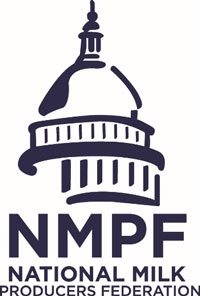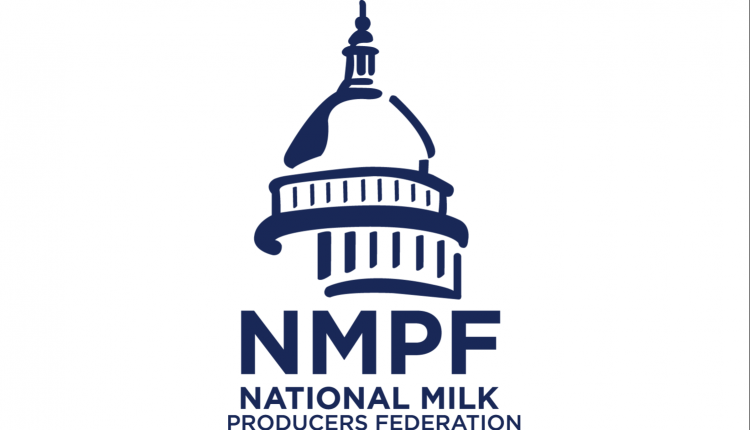
The National Milk Producers Federation (NMPF) helped secure several positive developments for dairy farmers and their cooperatives at the National Conference on Interstate Milk Shipments (NCIMS) this week, as multiple NMPF-led initiatives won approval from the NCIMS delegates during their biennial meeting here.
The NCIMS is a national cooperative regulatory program that includes state milk regulatory agencies, dairy companies and the U.S. Food and Drug Administration (FDA), which work together to ensure the safety and integrity of Grade “A” dairy products. The six-day NCIMS meeting concluded Wednesday, after delegates approved approximately 40 of the 100 proposals offered to revise the conference’s model milk sanitation ordinance and supporting documents.
“NMPF appreciates the opportunity to advocate on behalf of our members and is proud of our relationship with the NCIMS Conference and its participants,” said NMPF Vice President for Dairy Foods Beth Briczinski. “The collaborative spirit of this year’s conference again demonstrated the NCIMS motto of ‘Assuring the Safest Possible Milk Supply for All the People.’”
NMPF staff and members significantly contributed to the drafting of two proposals that were ultimately passed by the state voting delegates to finalize the alignment of the Pasteurized Milk Ordinance (PMO) – which has regulated the production and processing of Grade “A” milk products since 1924 – with the Food Safety Modernization Act (FSMA) Final Rule for Preventive Controls for Human Foods. NMPF has been working since FSMA was approved in 2011 to bring both regulatory schemes into one harmonized program, as the FSMA law has led to the most significant change to U.S. food safety regulations in 70 years.
NMPF submitted several proposals that were passed by conference delegates to provide clarity for processors, dairy cooperatives and their farmer-members, including alleviating any confusion about the timing criteria for tanker washing and milk sample collection; increasing transparency around milk safety program equivalence in other countries; and updating the requirements for bulk milk transportation and the requirements for voluntary testing of milk for drug residues.
Conference delegates also approved a resolution submitted by NMPF to encourage participation in a new pilot program to screen the milk supply for tetracycline drugs. Although not mandatory by industry or states, widespread participation in the program starting July 1 would assure any future changes in milk testing “can be based on the most representative and complete data available,” according to the resolution.
Briczinski noted that the dairy industry currently tests each tanker load of milk for the most commonly used farm antibiotics, beta-lactam drugs, and also carries out additional random testing for other classes of antibiotics, such as tetracycline. The new program “will help us fine tune the more than 3 million tests already being conducted each year to keep antibiotics out of the milk supply, and give us sound data on how to continue improving the screening process in the future,” she said.
NMPF also played a key role in opposing proposals that would have added an undue regulatory burden and unnecessary costs to dairy producers and the industry at large without enhancing food safety – such as adding requirements to the designs of milkhouses and milking equipment, and to the transportation of manufactured dairy products.
NMPF expressed gratitude for the involvement of its member cooperatives, processors, state dairy program regulators and FDA for their active participation during the conference.
The National Milk Producers Federation (NMPF), based in Arlington, VA, develops and carries out policies that advance the well-being of dairy producers and the cooperatives they own. The members of NMPF’s cooperatives produce the majority of the U.S. milk supply, making NMPF the voice of dairy producers on Capitol Hill and with government agencies. For more on NMPF’s activities, visit our website at www.nmpf.org.





